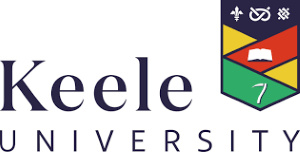Research Scientist Level 7 Apprenticeship – Tell us what you think

Keele University was part of the trailblazer and intends to be one of the first universities to offer the Research Scientist Level 7 Apprenticeship, integrating a two year part-time MSc and are very keen to measure employer interest in the programme.
- The Royal Society of Biology, the Institute of Physics and the Royal Society of Chemistry have provided an expedited route for individuals to achieve Chartered status (Chartered Biologist, Chartered Chemist or Chartered Physicist) through this apprenticeship, as the apprenticeship is closely aligned to a number of the Chartered status competencies/attributes.
- Jobs in science, research, engineering and technology are expected to rise at double the rate of other occupations between now and 2023.
By the end of the programme, the apprentice will be able to:
- Understand and handle scientific literature relevant to their chosen research area and introduce the processes of research planning through the development of a detailed research proposal
- Engage with and carry out a variety of science communication activities and select appropriate means for a specific audience, such as presenting at conferences, or at executive meetings for complex strategic recommendations
- Audit their personal research skills and act upon the outcomes to enhance these skills and subsequently tackle and solve problems with confidence and independence, and act autonomously in planning and implementing tasks at a professional or equivalent level
- Competently plan, organise and manage a programme of independent experimental work, and to demonstrate self-direction, dedication and originality to independent learning
- Understand the need to comply with local health and safety rules, and the necessity for risk assessment and the health and safety issues relevant to the laboratory research work
- Promote an integrated approach to theoretical knowledge, understanding and practical implications of the scientific work alongside personal thoughts and experiences, and show originality in the application of new knowledge
- Identify longer-term opportunities and risks and apply scientific and technical leadership skills for critical projects, in collaboration with both industry and academia
- Lead on the development of, and drive strategic plans within a scientific context and input to/suggest wider organisational strategy linked to their role.
- Make decisions based on an understanding of the organisational and the wider business market (e.g. legal, technical, environmental, political and economic).
Please assist by sending comments to Terry Dray, Director for Employability and Employer Engagement, Keele University - t.r.dray@keele.ac.uk





















